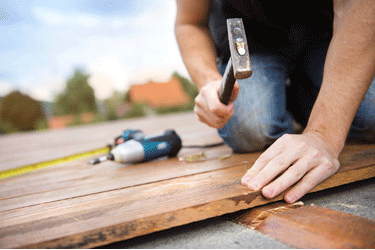Maryland Home Improvement Commission: Your Comprehensive Guide
In the vibrant state of Maryland, home improvement is more than just an investment; it’s a reflection of the community’s commitment to enhancing the quality of life. At the heart of this endeavor lies the Maryland Home Improvement Commission (MHIC), a pivotal entity responsible for regulating home improvement practices in the state. This article aims to provide an in-depth understanding of the MHIC, its functions, licensing requirements, and the benefits it offers to homeowners and contractors alike.
Table of Contents
What is the Maryland Home Improvement Commission?
The Maryland Home Improvement Commission is a regulatory body established to oversee the home improvement industry in Maryland. Operating under the Maryland Department of Labor, the MHIC ensures that all home improvement contractors adhere to strict standards, thus safeguarding consumer interests and maintaining the integrity of the home improvement sector.
Mission and Goals of the MHIC
The primary mission of the MHIC is to protect the public by ensuring that all home improvement projects are executed by qualified and licensed professionals. The commission aims to safeguard consumers, promote fair practices, and enhance quality standards by enforcing licensing and bonding requirements.
Licensing Requirements for Home Improvement Contractors
To legally operate as a home improvement contractor in Maryland, individuals must obtain an MHIC license. This process involves several key steps.
Application Process
The application process is rigorous, requiring prospective contractors to submit detailed information about their business, including business structure, experience and qualifications, and insurance and bonding proof. These elements are essential to demonstrate the contractor’s capability and reliability in handling home improvement projects.
Background Check
All applicants are subject to a thorough background check. This includes a criminal history review to ensure that applicants do not have felony convictions that would disqualify them from holding a license. Additionally, the financial integrity of the business is assessed to ensure it can operate responsibly.
Examination
In certain cases, applicants may need to pass a licensing examination. This test evaluates knowledge in areas such as construction codes and business practices. A solid understanding of local building codes and ethical business practices is crucial for any contractor looking to establish a successful career in the industry.
Benefits of Working with Licensed Contractors
Homeowners can gain significant advantages by choosing to work with licensed contractors. First and foremost, they receive the assurance of quality work. Licensed contractors are held to high standards, and the MHIC conducts regular audits and investigations to ensure compliance with industry standards.
Moreover, working with licensed contractors provides homeowners with legal protection. Should disputes arise, homeowners have the right to file complaints with the MHIC if they believe a contractor has violated state laws or regulations. This mechanism fosters accountability and transparency within the industry.
Furthermore, the MHIC provides valuable resources for both homeowners and contractors. This includes consumer education workshops and seminars on home improvement topics, as well as access to continuing education and training programs for contractors to help them stay updated on industry trends and regulations.
Understanding the Types of Home Improvement Projects
Maryland homeowners engage in a variety of home improvement projects, ranging from minor repairs to major renovations. Understanding these categories can help homeowners make informed decisions.
Major Renovations
Major renovations often involve significant changes to a home. This includes room additions that expand living spaces, such as adding bedrooms or creating home offices. Additionally, kitchen and bathroom remodels focus on upgrading fixtures, cabinets, and layouts to improve functionality and aesthetics.
Minor Repairs
Homeowners may also seek licensed contractors for minor repairs. This can encompass roofing repairs, such as fixing leaks or replacing shingles, and exterior maintenance, including painting, siding repairs, and gutter cleaning. Even small projects benefit from the expertise of licensed professionals, ensuring quality and longevity.
How to Choose the Right Home Improvement Contractor
Selecting the right contractor is crucial for the success of any home improvement project. Homeowners should verify licensing and insurance to ensure that the contractor holds a valid MHIC license and adequate insurance coverage. This protects against potential liabilities that may arise during the project.
It is also essential to check references and reviews. Requesting references from past clients and reading online reviews helps homeowners gauge a contractor’s reputation. A reputable contractor should have a track record of satisfied customers and successful projects.
Additionally, obtaining multiple quotes is advisable. This helps homeowners understand the market rate and ensures they receive a fair price for their project. It also provides an opportunity to compare the services and expertise offered by different contractors.
Finally, evaluating communication skills is vital. A good contractor should communicate clearly and be responsive to questions and concerns. Effective communication fosters a positive working relationship and contributes to the overall success of the project.
The Role of the MHIC in Consumer Complaints
If homeowners encounter issues with their contractor, the MHIC plays a crucial role in resolving disputes. Homeowners can file a complaint through the commission, which will investigate the matter and take appropriate action. This may include mediation, facilitating a discussion between the homeowner and contractor to reach a resolution, or disciplinary action if a contractor is found in violation of regulations. The MHIC may impose fines, suspend, or revoke a contractor’s license based on the findings the home improvements.net/.
Conclusion: A Commitment to Excellence in Home Improvement
In conclusion, the Maryland Home Improvement Commission serves as a vital resource for both homeowners and contractors, ensuring high standards within the home improvement industry. By promoting transparency, quality, and consumer protection, the MHIC helps maintain the integrity of the market and enhances the overall home improvement experience in Maryland.

